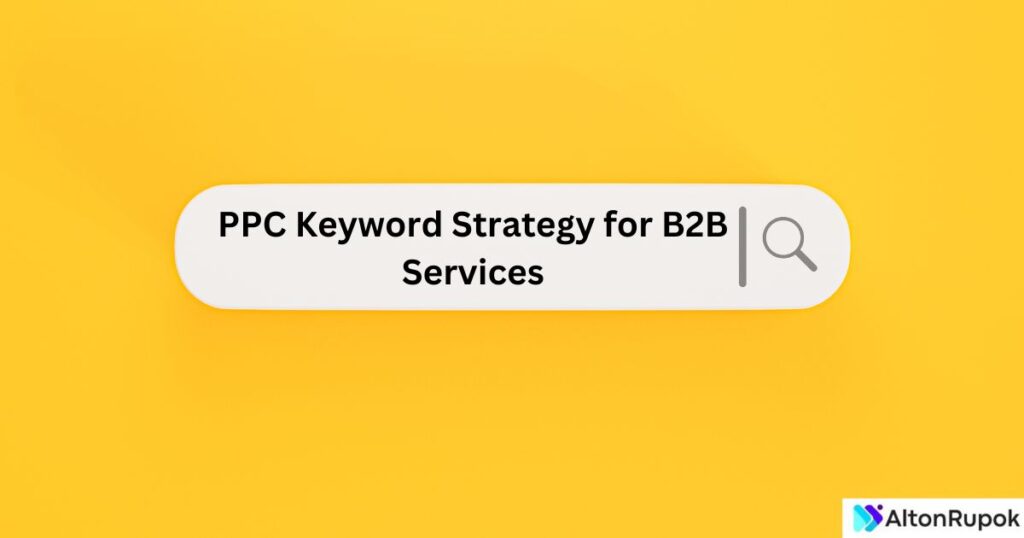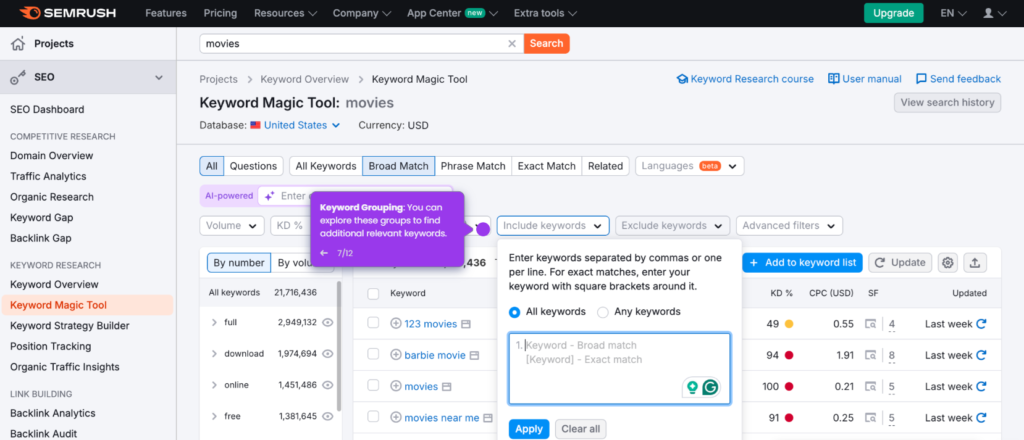PPC stands for Pay-Per-Click. It is a form of online advertising. Businesses pay a fee each time their ad is clicked. PPC is great for B2B services. It helps businesses reach other businesses. But, you need the right keywords. This guide will help you choose the right PPC keywords for B2B services.

Credit: www.brandchemistry.com.au
Understanding PPC Keywords
Keywords are words or phrases. They are what people search for online. In PPC, keywords link your ads to these searches. When someone searches for a keyword, your ad can appear. Choosing the right keywords is key. It ensures your ad reaches the right people.
Types Of Keywords
There are three main types of keywords:
- Broad Match Keywords: These are general words. They reach a wide audience. Example: “business services.”
- Phrase Match Keywords: These are more specific. They include the keyword in the search phrase. Example: “affordable business services.”
- Exact Match Keywords: These are very specific. The search must match the keyword exactly. Example: “best business services 2023.”
Choosing the Right Keywords
Choosing the right keywords is important. It helps your ad reach the right audience. Here are some steps to follow:
Step 1: Know Your Audience
Understand who your audience is. Know what they are looking for. Are they looking for solutions? Are they looking for services? This will help you choose the right keywords.
Step 2: Research Keywords
Use SEMrush tools to research keywords. Google Keyword Planner is a good tool. It shows how often keywords are searched. It also shows how much competition there is for each keyword.
Step 3: Choose Relevant Keywords
Choose keywords that are relevant to your services. If you offer IT services, choose IT-related keywords. Avoid keywords that are too broad. They may not reach the right audience.
Step 4: Use Long-tail Keywords
Long-tail keywords are longer phrases. They are more specific. They have less competition. Example: “affordable IT consulting services for small businesses.”
Step 5: Analyze And Adjust
Once your campaign is running, analyze the results. See which keywords are working. Adjust your keywords if needed. This helps improve your campaign over time.
Using Negative Keywords
Negative keywords are words you don’t want your ad to show for. They help filter out irrelevant searches. Example: If you offer premium services, you may use “cheap” as a negative keyword.
Why Use Negative Keywords?
Negative keywords help you save money. They ensure your ad only shows for relevant searches. This increases the chances of reaching the right audience.

Credit: ppcexpo.com
Monitoring Your PPC Campaign
Once your campaign is live, monitor it regularly. Check the performance of your keywords. Look at metrics like click-through rate (CTR) and conversion rate. These metrics show how well your campaign is doing.
Key Metrics To Monitor
| Metric | Description |
|---|---|
| Click-Through Rate (CTR) | The percentage of people who click your ad after seeing it. |
| Conversion Rate | The percentage of clicks that lead to a desired action (like a sale). |
| Cost Per Click (CPC) | The average amount you pay for each click on your ad. |
| Quality Score | A score that measures the quality and relevance of your ads and keywords. |
Best Practices for PPC Keyword Strategy
Here are some best practices to follow:
- Be Specific: Choose specific keywords that match your services.
- Use a Mix: Use a mix of broad, phrase, and exact match keywords.
- Include Long-Tail Keywords: They are less competitive and more targeted.
- Use Negative Keywords: Filter out irrelevant searches.
- Monitor and Adjust: Regularly check your campaign and make adjustments.
Frequently Asked Questions
What Is A PPC Keyword Strategy?
A PPC keyword strategy involves selecting the right keywords to target in your pay-per-click ads.
Why Is Keyword Research Important For B2b Services?
Keyword research helps you find terms your target audience uses, improving ad relevance and campaign success.
How Do I Choose The Best Keywords For Ppc?
Choose keywords that match your audience’s search intent. Focus on relevance, search volume, and competition.
What Are Long-tail Keywords?
Long-tail keywords are longer, more specific search phrases. They usually have lower competition and higher conversion rates.
Conclusion
Choosing the right PPC keywords is important for B2B services. It helps you reach the right audience. Follow the steps in this guide. Use the best practices. Monitor your campaign. Adjust your keywords if needed. This will help you get the best results from your PPC campaign.
Remember, PPC is a continuous process. It requires regular monitoring and adjustment. But with the right strategy, it can be a powerful tool for your B2B services.



